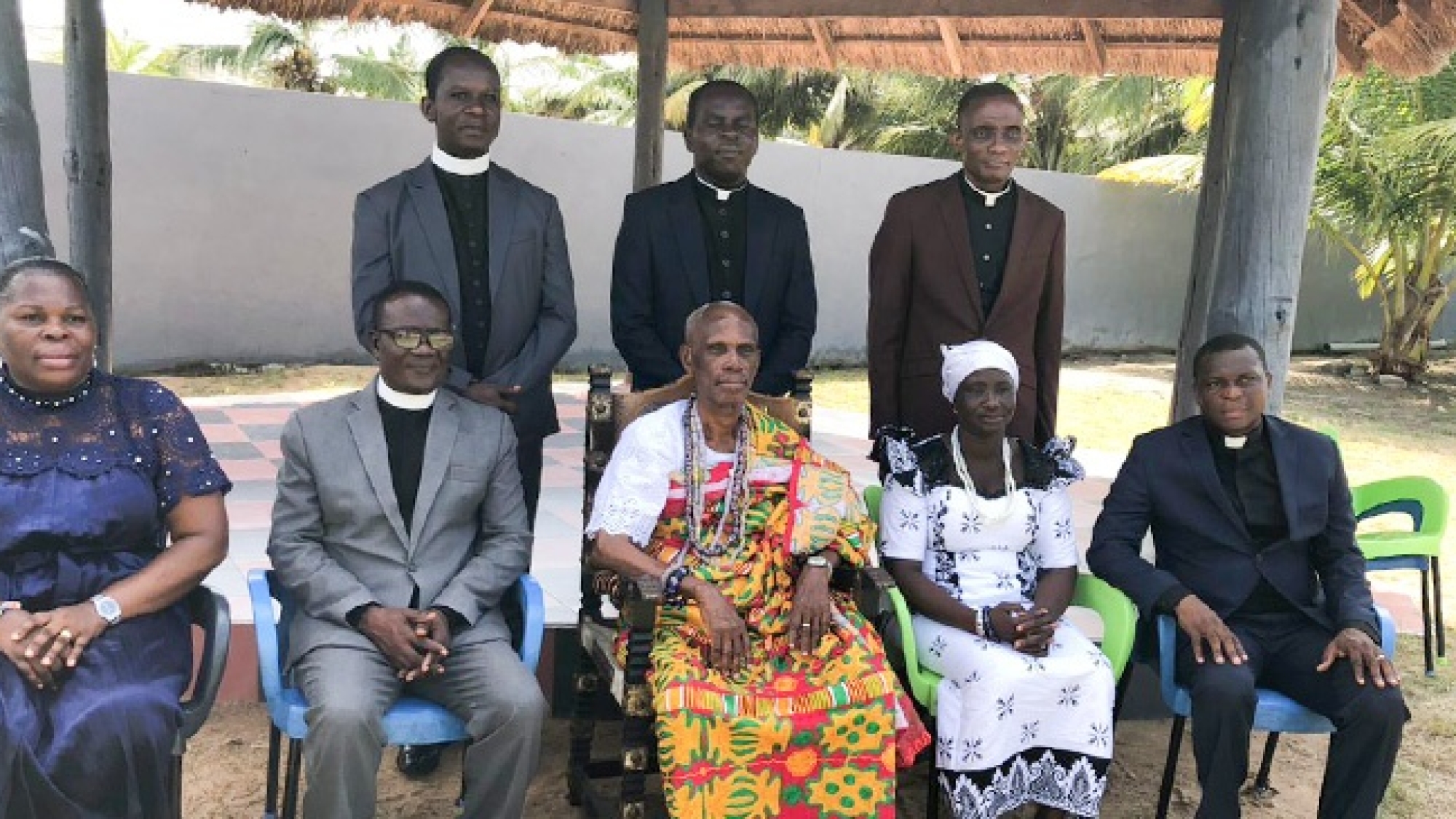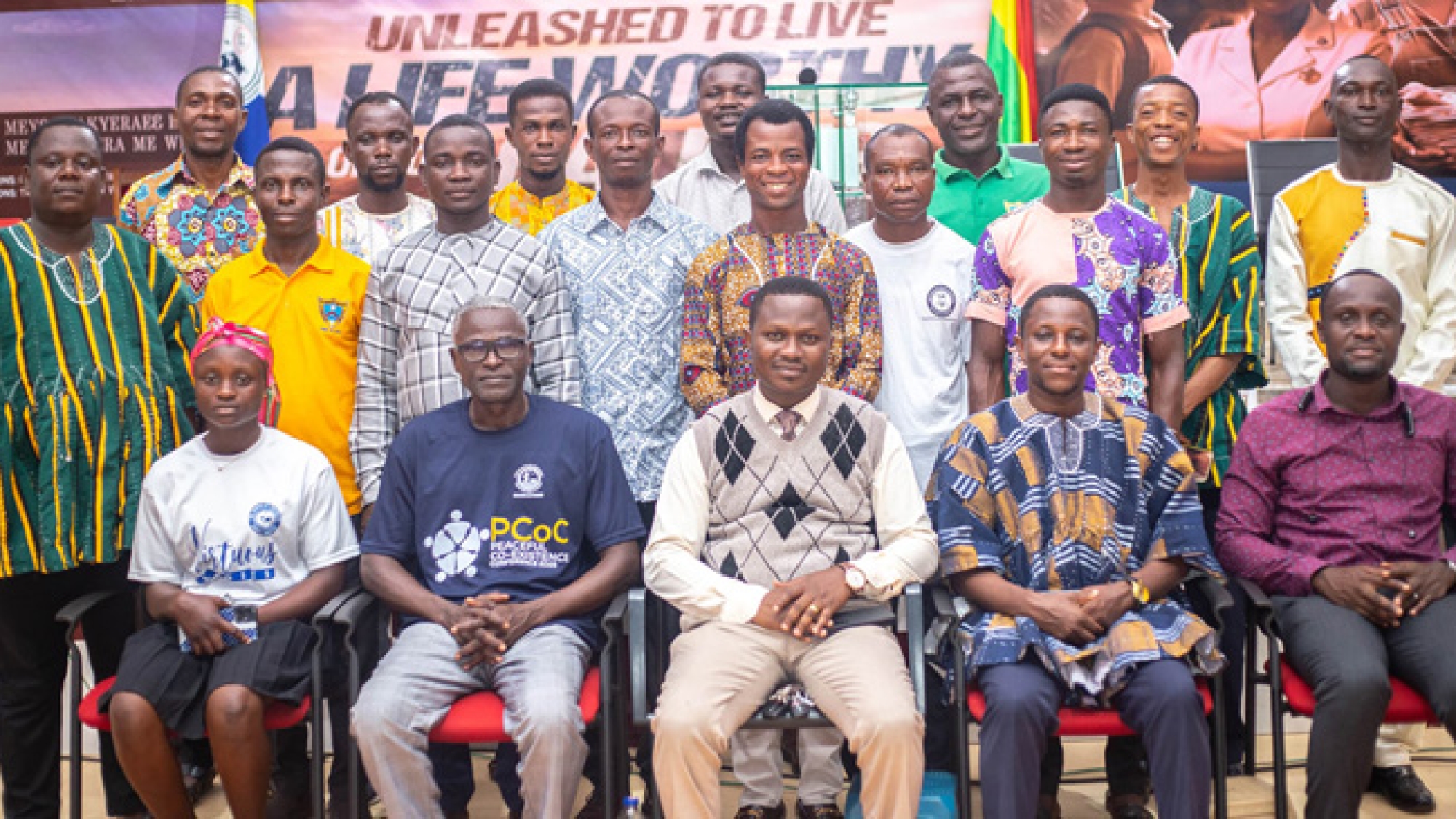The New York Area Youth and PENSA Ministry of The Church of Pentecost, renowned for its vibrancy and spiritual zeal, once again demonstrated the power of united faith and divine encounter through its annual prophetic conference, PAROUSIA ’25, held under the theme “When The Spirit Moves.”
This year’s edition took on a unique spiritual depth as over 300 young people journeyed away from the bustle of city life to the serene Camp of the Woods at Speculator, New York, for a weekend of intense fellowship and encounter with God.
The retreat was more than a conference; it was a pilgrimage – a deliberate step into the mountains to seek God in an atmosphere free from distractions. Surrounded by nature’s majesty, the gathering set the stage for a true “Upper Room experience,” marked by expectation, preparation, and openness to the mighty move of the Spirit. From October 31 to November 2, 2025, the mountain air echoed with prayer, worship, and prophetic fire as the youth of the New York Region sought a fresh outpouring of God’s presence.
The event brought together seasoned ministers of the Church, including Apostle Isaac Anane-Sarfo (New York Area Head), Apostle Foday Kaba Dumbuya (President, Pentecost Biblical Seminary), Pastor Albert Sampana (Youth and PENSA Director, CoP USA Inc.), Pastor Fidelis Mensah (New York Area Youth and PENSA Pastor and Convener), and Overseer Yaw Osei-Owusu (Capital City District Pastor). Also enriching the atmosphere were guest artists Elder James Owusu (JKO Ministries) and Minister Sewa, whose Spirit-led ministrations lifted hearts in worship and ushered in waves of revival.
The opening service on Friday evening, themed “A Night of Expectation and Preparation,” featured a powerful sermon by Pastor Albert Sampana on “Vessels of the Move of the Spirit.” He called on the youth to yield fully to God’s refining process and to position themselves as instruments of His power. The session concluded with fervent prayer and a deep altar call, igniting the spiritual momentum for the days ahead.
On Saturday morning, during the “Holy Ghost Encounter,” Apostle Isaac Anane-Sarfo preached passionately on “When the Spirit Moves: An Assignment to Possess the Nations.” He emphasized that before believers can impact the world, the Spirit must first transform them. The message was followed by a mighty move of God during an extended time of prayer, where many received the baptism of the Holy Spirit, healings took place, and lives were set free.
The evening service built even greater spiritual intensity. Overseer Yaw Osei-Owusu delivered a compelling word on repentance and holiness as prerequisites for the mighty move of God. The atmosphere became charged with worship led by Elder James Owusu and Minister Sewa, resulting in an unforgettable time of healing, deliverance, and spiritual renewal. The presence of God was palpable, and testimonies of breakthroughs filled the gathering.
The conference reached its glorious climax on Sunday with the Adoration Service, where Apostle Foday Kaba Dumbuya ministered under the theme “In Step with the Spirit.” He expounded on the supernatural manifestations of the Holy Spirit in the life of the believer and described PAROUSIA as a “divine appointment” rather than just a program. He challenged participants to live in constant fellowship with the Spirit, stating that “a Christianity detached from the Spirit’s reality becomes difficult and burdensome.” The message culminated in a solemn yet powerful commissioning prayer, as an army of Spirit-filled youth were sent forth to impact their generation.
PAROUSIA ’25 was more than an event – it was a Pentecostal visitation that reignited passion, birthed revival, and reaffirmed the ministry’s divine mandate to raise Spirit-filled leaders who will possess the nations. Indeed, the mighty wind of the Spirit blew through the mountains, leaving an indelible mark on every heart present.
Report by Pastor Fidelis Graham Mensah, New York Region Youth Pastor (Albany District)














